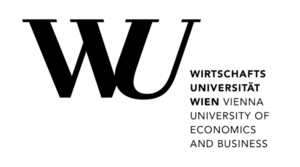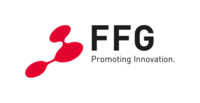Circular Business models and supporting policies for timber supply chains in the Austrian construction industry
Background
The construction industry is a major consumer of natural resources and contributes significantly to CO2 emissions. To reduce its ecological footprint and meet the goals of the Paris Climate Agreement, timber can serve as a sustainable alternative to fossil-based and energy-intensive construction materials. However, the growing demand for timber in the EU necessitates a shift away from the traditional linear 'take-make-dispose' model that currently dominates the industry. A more sustainable approach is needed. By applying circular economy principles and prioritizing climate-neutral construction, we can use timber more efficiently and mitigate the overuse of natural resources.
Project Content
In this project, we explore how circular economy principles can be more widely applied in the construction industry by using a mixed-method approach (interviews, supply chain mapping, and analysis using game theory and simulation). We particularly focus on timber construction and supply chains and assess the steps policymakers need to take to implement sustainable practices in this sector. To develop effective solutions, we examine the characteristics of construction supply chains and identify the potential benefits and risks of adopting a circular approach. We also assess circular business models, considering both their economic viability and environmental impact. Given the urgency of the climate crisis, we aim to work out fast-acting measures.
Research Questions
Research questions are:
- Can adopting a circular economy approach in the Austrian timber construction industry significantly reduce CO2 emissions? Which of the six R's—reduce, reuse, recycle, refuse, rethink, and repair—prove to be useful for achieving this goal?
- Who are the key actors in the Austrian timber supply chain, and which supply chain characteristics need to be adapted to drive transformative change towards greater sustainability?
- What opportunities, challenges, and conflicts lie within the timber supply chain? How should they be addressed by Austrian policymakers to develop strategies that foster circular economy?
- There is no established market in Austria for recycled or reused materials, making virgin materials less costly by comparison. This raises the question of what measures can be taken to increase the use of recycled or reused materials in the construction sector.
Results
We provide concepts for sustainable supply chains in the construction industry, with a strong emphasis on circular economy principles. These concepts pave the way for a more climate-friendly business model. Specifically, we not only demonstrate the potential of switching to circular business models in the timber construction industry, but also outline the economic and environmental trade-offs, and discuss the risks associated with the transition as well. Additionally, we evaluate effective policies that bring about more sustainability in the construction industry.
Project Partner
Funding
You want to know more? Feel free to ask!
Department of Rail Technology and Mobility
- Wirtschaftsuniversität Wien, Research Institute for Supply Chain Management (lead)




